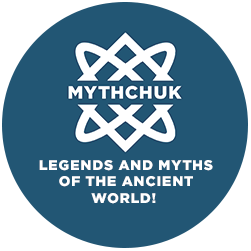Mavka: The Shadowless Spirit of the Forest in Slavic Myth and Memory
- Main
- >
- Slavic Mythology
- >
- Slavic Bestiary
- >
- Mavka
Did you know there’s a forest spirit that lures with song — and it’s not just a fairytale? And at the end, you’ll learn why she never casts a shadow…
A Mavka is the spirit or soul of a girl who died prematurely, most often by unnatural causes. She belongs to the lower spirits in Slavic demonology and is deeply connected to forests, trees, and spring. Mavkas are known as seductresses who enchant men — but they are also symbols of emotional pain, innocence, and lost life.
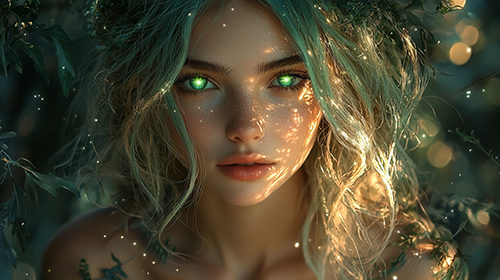 Mavka
MavkaOrigins and Nature of Mavkas
According to ethnographic records by Hrushevsky, Franko, and Chubynsky, Mavkas are considered to be the souls of girls who died before marriage — often by suicide, drowning, or as a result of a curse. Typically, they died young, in springtime.
Mavkas have no graves — it was believed that such souls couldn’t find peace and wandered through fields, riverbanks, and forests. Their presence was especially felt in the Carpathian woods, northern marshes, and thickets along rivers.
Their appearance is striking: exceptionally beautiful young women with long flowing hair, walking barefoot, dressed in sheer blouses. One of their defining traits, often noted in folk belief, is that they cast no shadow.
It was also said that Mavkas never turned their backs to people — for they had no skin on their backs, revealing exposed organs. Another belief claimed Mavkas left no footprints — they moved as if hovering, their steps never touching the earth.
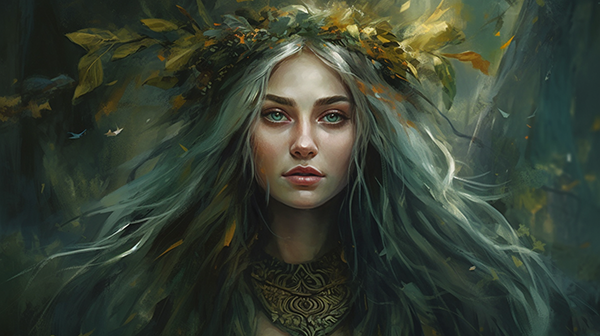 Lifestyle and Behavior
Lifestyle and BehaviorLifestyle and Behavior
Mavkas are not mere phantoms — they are sentient beings. They live in forests, sometimes gathering in groups to dance in circles, play wooden flutes, or move through moonlight. These images are widely known from folk songs and ethnographic records from Podillia, Volyn, and the Carpathians.
During Rusalka Week — a special springtime period — Mavkas would come out into the fields. It was forbidden to work the land during this time, as it could bring misfortune. Some legends say that during this period, Mavkas become more aggressive and could cause illness or even death to anyone who disturbed them.
Many stories describe how a Mavka lures men with her voice and beauty. But once the victim approaches, she either vanishes or destroys him — pulling him into an abyss or killing him with a single touch.
However, some legends tell of Mavkas who would spare those who respected the forest or had a pure heart.
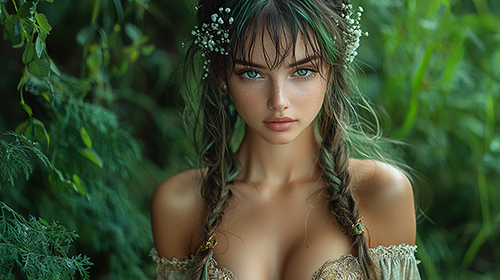 Mavka and Love
Mavka and LoveMavka and Love
Not all legends portray Mavkas as dangerous. In some stories (especially from Volyn), a Mavka is capable of love. One of the most famous tales tells of a girl who drowned herself after being abandoned by her lover. She became a Mavka, but every spring she returned to their meeting place — just to see him from afar. Her song could be heard in the wind, though no one saw her.
Another story speaks of a lost woodcutter in the mountains, who was rescued by a Mavka — she gave him water and showed him the way. He kept her secret, and legend says he lived a long and happy life.
These stories reveal that the Mavka is not only a punishing spirit but also a soul capable of emotion, love, and compassion. They show a deep cultural understanding of the interdependence between humans and nature.
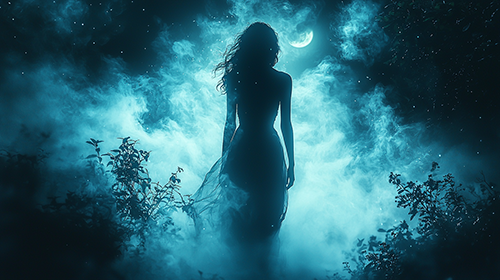 The Death or Disappearance of a Mavka
The Death or Disappearance of a MavkaThe Death or Disappearance of a Mavka
These beings do not die natural deaths. It was believed that a Mavka could “disappear” if her shadow was returned or if the place of her appearance was blessed. In other versions, she vanishes after fulfilling her posthumous purpose — such as revenge or completing a tragic destiny.
It was said that when a Mavka disappears, the place she haunted has been cleansed. However, even after her disappearance, her song may still echo in the forest — especially during a full moon.
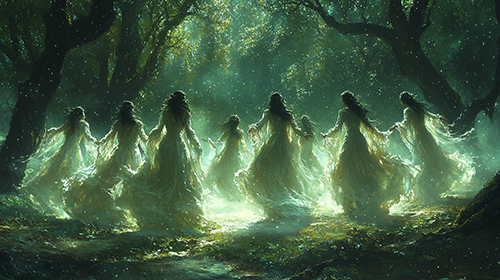 Protection From Mavkas
Protection From MavkasProtection From Mavkas and People's Attitudes Toward Them
Effective protective charms against Mavkas included garlic, onion, horseradish, lovage, or wormwood. But if a Mavka lured a man into the forest and he had none of these, he could remove his shirt and wear it inside out. This would frighten the Mavka away.
On the other hand, people believed that Mavkas possessed secret knowledge and magical power, and thus they were treated with reverence — especially during Green Holidays (Zeleni Sviata). Offerings of ritual bread were left in fields, as it was believed Mavkas blessed crops and warded off misfortune.
This duality reflects a deep Ukrainian cultural paradox: to both honor and fear the same being — to worship and yet be wary.
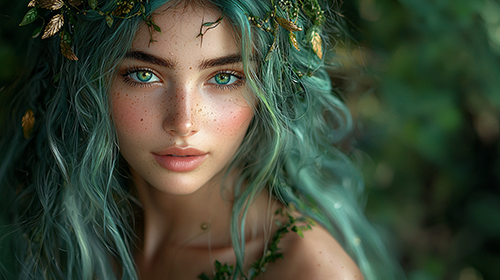 What the Mavka Symbolizes
What the Mavka SymbolizesWhat the Mavka Symbolizes
The Mavka is a rich and poetic figure of Slavic mythology. She represents not only death and loss, but also feminine strength, willpower, and resilience in the face of betrayal.
Her core attributes — unbound hair, white blouse, and haunting song — are deeply rooted in folklore as emblems of purity, emotional pain, and forest magic.
Today, the Mavka is remembered in folk festivals, academic studies, place names, and oral poetry. She remains one of the most poetic and complex figures in the Slavic mythological tradition, still inspiring researchers and artists alike.
But above all — the Mavka has endured in the collective memory of the people, reminding us of the timeless connection between life, death, and nature.
